In a world where billionaires rise and fall with market trends and startup cycles, few fortunes are as enduring—and as enigmatic—as that of Sultan Hassanal Bolkiah, the monarch of Brunei. Known for ruling one of the wealthiest per-capita nations on Earth, the Sultan has long been a symbol of opulence, absolute power, and royal mystique. But in 2025, his wealth tells an even more staggering story.
With estimates placing his net worth well into the tens of billions, the Sultan of Brunei ranks not only among the richest monarchs alive but also rivals some of the world’s most powerful oil tycoons and sovereign investors. Yet behind the gold-plated headlines and record-breaking car collections lies a deeper narrative—one shaped by geopolitics, petroleum diplomacy, and a uniquely Bruneian blend of governance and legacy.
This article goes beyond the surface figures to explore how Sultan Hassanal Bolkiah amassed and preserved his royal wealth, how Brunei’s oil reserves became a family inheritance, and what his financial empire looks like today. From personal palaces to global investments, this is the untold story of a fortune built not just through wealth—but through unchallenged reign.
2025 Net Worth Breakdown: The Sultan’s Wealth in Today’s Terms
As of 2025, Sultan Hassanal Bolkiah’s estimated net worth stands at approximately $30 billion, according to Economics Times making him one of the wealthiest royals in the world. This figure places him firmly among the world’s wealthiest royals, surpassing even many oil-rich peers in the Middle East. But as with most absolute monarchs, his wealth is not just personal—it’s interwoven with state ownership, historical privilege, and a complex system of asset control.
At the core of the Sultan’s fortune lies Brunei’s vast petroleum reserves, managed in large part through the Brunei Investment Agency (BIA). Founded in 1983, the BIA functions as both a sovereign wealth fund and a private financial engine for the royal family. Though its books are closed to the public, analysts estimate it controls tens of billions in global assets, ranging from luxury hotels like The Dorchester Collection to strategic real estate in London, Paris, and Beverly Hills.
Then there’s the Sultan’s portfolio, which includes a staggering array of tangible luxuries: the Istana Nurul Iman—the world’s largest residential palace—his fleet of over 7,000 cars, multiple private jets, and a collection of custom Rolexes and rare art. Unlike publicly accountable government leaders, the Sultan faces no distinction between public and private when it comes to spending state revenue, which blurs the line between sovereign wealth and personal wealth.
This duality—where national oil wealth funds royal luxury—makes Sultan Hassanal Bolkiah’s financial position both powerful and opaque. Understanding his net worth in 2025 requires more than a number—it demands a look at how control, inheritance, and state infrastructure combine into one of the most unmatched fortunes in modern history.
The Oil Empire: Fueling a Billion-Dollar Dynasty
Brunei’s extraordinary royal wealth has one primary source: oil. For over half a century, the nation’s petroleum reserves have acted as a private engine of prosperity for Sultan Hassanal Bolkiah, turning a small Southeast Asian kingdom into a global symbol of concentrated wealth.
The story begins in 1929, when oil was first discovered in Seria, a coastal town in northwestern Brunei. But it wasn’t until the country gained full independence from the United Kingdom in 1984, under Sultan Hassanal Bolkiah’s rule, that the state’s oil and gas revenue became directly aligned with royal power. Brunei’s post-colonial economy was intentionally centralized around its hydrocarbon sector, with economic policy and wealth management consolidated under the Sultan’s control.
A key player in this dynamic is Brunei Shell Petroleum (BSP), a joint venture between the Brunei government and Shell—one of the world’s energy giants. BSP not only extracts and refines Brunei’s oil and gas but also channels substantial revenue back into state—and by extension, royal—hands. With crude oil and LNG exports accounting for over 90% of government revenue, it’s no exaggeration to say that Brunei’s royal fortune is built on black gold.
Revenues from these exports are funneled through state-controlled mechanisms, including the Brunei Investment Agency (BIA), which invests globally on behalf of the Sultan and the nation. Because Brunei lacks public taxation and relies almost entirely on oil income, the line between national wealth and personal wealth becomes fluid—especially when one person wields absolute control.
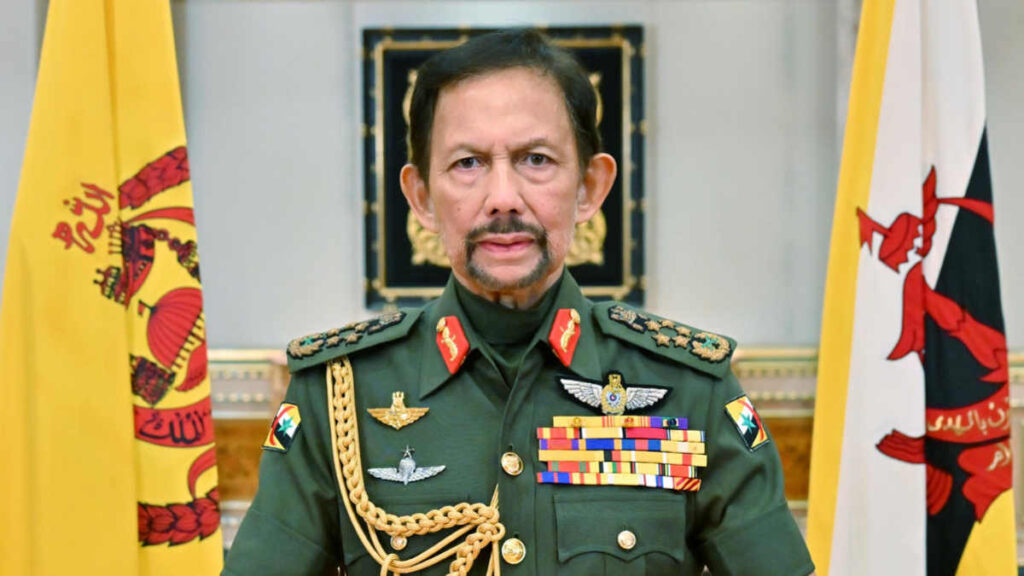
The Sultan’s Crown Assets: Palaces, Jets, and the World’s Largest Car Collection
While oil forms the foundation of Sultan Hassanal Bolkiah’s fortune, it’s his luxuries that give his wealth its most jaw-dropping form. From record-breaking architecture to rare collector items, the Sultan has curated a portfolio of possessions that few billionaires—royal or not—can rival.
At the heart of his material empire is Istana Nurul Iman, the official royal residence. Spanning over 2 million square feet with 1,788 rooms, 257 bathrooms, a mosque for 1,500 worshippers, and its helipad, it holds the Guinness World Record as the largest residential palace on Earth. Unlike many heads of state who separate personal homes from official quarters, this palace blurs that line—it’s both royal workplace and private domain.
Beyond the palace gates, the Sultan owns a private fleet of Boeing 747s and Airbus A340s, each customized with solid gold accents, marble interiors, and on-board bedrooms. These jets are not government aircraft—they are personal luxury liners that mirror the Sultan’s taste for extravagance.
But perhaps most famous is his unparalleled car collection, estimated to number over 7,000 vehicles, including:
- 600+ Rolls-Royces
- Dozens of custom-built Bugattis and Ferraris
- Rare concept cars and one-offs from Bentley, McLaren, and Koenigsegg
Many of these vehicles have never been seen by the public, stored in a sprawling private garage complex with restricted access.
While some argue these assets serve as national symbols, most are considered privately owned and maintained using the Sultan’s discretionary budget. They offer a revealing lens into his lifestyle—a fusion of absolute monarchy, petroleum wealth, and a deep-seated love for engineering marvels and regal opulence.
Not Just Oil: Diversifying the Royal Fortune Through Global Holdings
Though Brunei’s oil reserves remain the engine behind its royal fortune, Sultan Hassanal Bolkiah has long recognized the need to diversify his wealth—and he’s done so with quiet precision through one of the world’s lesser-known sovereign wealth giants: the Brunei Investment Agency (BIA).
Established in 1983, the BIA manages an estimated $60–70 billion in assets, though its full portfolio remains opaque. Functioning similarly to sovereign wealth funds in the Middle East, the BIA is unique in that it operates under the direct authority of the Sultan—blurring the line between state capital and royal holdings. This gives the Sultan access to a global web of passive income streams, real estate, and strategic investments that shield his fortune from oil price volatility.
Among the BIA’s most recognizable assets is The Dorchester Collection, a group of ultra-luxury hotels that includes icons like The Dorchester in London, Hotel Plaza Athénée in Paris, and The Beverly Hills Hotel in Los Angeles. These properties not only generate steady revenue but also serve as de facto royal outposts—known for hosting Bruneian dignitaries and state guests.
The Sultan’s approach is notably more discreet than the highly publicized investments of entities like Saudi Arabia’s Public Investment Fund or the UAE’s Mubadala. Brunei’s strategy is conservative, favoring long-term value preservation over aggressive expansion, aligning with the Sultan’s goal of wealth continuity over spectacle.
Power, Privilege & Policy: How Governance Keeps the Wealth Flowing
The staggering wealth of Sultan Hassanal Bolkiah isn’t just the product of oil and global investments—it’s also the result of total political control. As the head of one of the world’s few remaining absolute monarchies, the Sultan doesn’t merely influence Brunei’s economic engine—he is its central gear.
Since ascending the throne in 1967, the Sultan has held complete authority over Brunei’s legislative, judicial, and executive branches. He also serves as the country’s Prime Minister, Finance Minister, and Supreme Commander of the Armed Forces, making him one of the most powerful individual rulers in modern history. This level of concentration allows for seamless decision-making in financial policy, enabling the royal family to operate with minimal transparency or public oversight.
Layered atop this political structure is a potent form of religious legitimacy. In 2014, Brunei became the first East Asian country to adopt a national sharia law framework, giving the Sultan not just temporal authority, but also religious leadership as the protector of Islam in the nation. This fusion of spiritual and secular power reinforces his position and the cultural framing of his wealth as divinely sanctioned.
Brunei’s state-subsidized economic model further sustains royal dominance. With no income tax, free education, and universal healthcare, the Sultan provides generous social programs funded entirely by oil revenues. This creates a patronage economy, where citizens benefit from state generosity in exchange for political compliance—a setup that cements both loyalty and the Sultan’s enduring control.
While critics argue this model suppresses dissent and concentrates wealth dangerously, it has so far allowed the Sultan to maintain unquestioned rule—and with it, one of the most secure and unshakable fortunes in the world.
How the Sultan Ranks Among Global Royalty & Billionaires
In the rarefied world of royal billionaires, Sultan Hassanal Bolkiah consistently ranks among the wealthiest. Yet in 2025, his standing takes on new dimensions—especially when viewed alongside other oil-rich monarchs who also rule over resource-laden economies.
With an estimated net worth of $30 billion, the Sultan of Brunei rivals or exceeds several of his Middle Eastern counterparts, despite governing a nation of just 450,000 people. For comparison, King Salman of Saudi Arabia oversees a nation of over 35 million and controls the world’s second-largest oil reserves, yet his fortune (largely tied to the House of Saud and distributed across family branches) is estimated at $18 billion.
Meanwhile, Sheikh Mohammed bin Rashid Al Maktoum, the ruler of Dubai and Prime Minister of the UAE, is valued at around $14 billion, much of which is derived from real estate ventures, government-linked business entities, and the Dubai Holding conglomerate.
One of the few royals who regularly tops all others is King Maha Vajiralongkorn of Thailand, with an estimated fortune exceeding $30 billion, thanks to his control over the Crown Property Bureau and vast urban real estate in Bangkok.
What makes the Sultan of Brunei unique isn’t just his net worth, but the proportion of national wealth he directly influences. Brunei’s GDP hovers around $15–17 billion, meaning the Sultan’s fortune nearly doubles the entire country’s annual output—an extraordinary contrast to the wealth-to-population ratio of other monarchs.
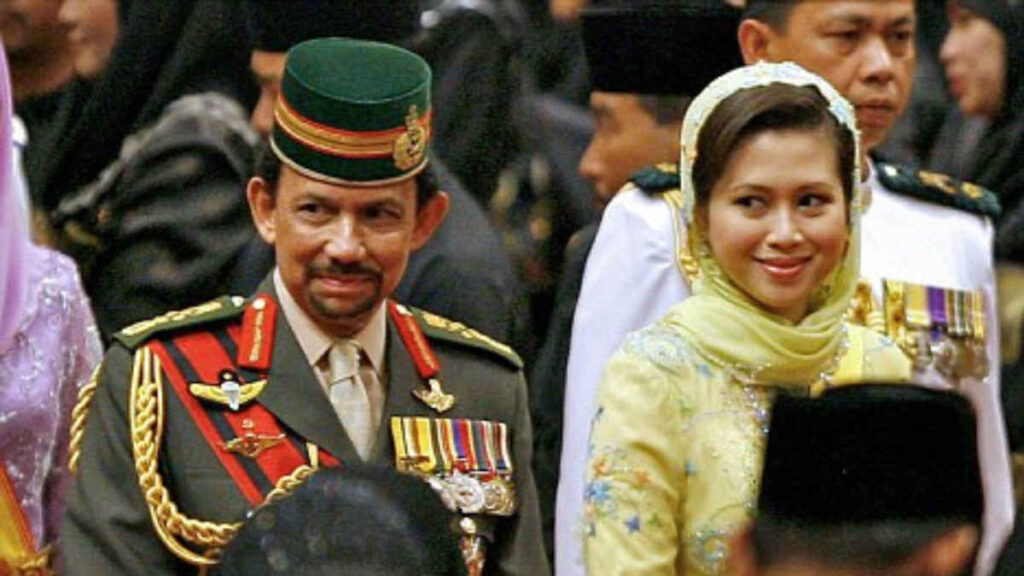
Stepping into Splendor: My Personal Journey Through Brunei’s Opulence
I first arrived in Bandar Seri Begawan on a rain-slick afternoon in early spring, half-expecting a gilded capital teeming with symbols of extravagance. What I found was something far more subtle—and in some ways, more surreal. Brunei’s capital city is quiet, even modest, with spotless streets, serene mosques, and an air of preserved calm. Yet just beyond the tree-lined avenues rises the Istana Nurul Iman, its golden domes gleaming in the sunlight like something pulled from myth.
You can’t get close—not really. The palace, the largest royal residence in the world, sits behind guarded gates and dense tropical greenery. But even from a distance, its scale is humbling. Locals speak of it in hushed tones, often with pride but occasionally with detachment. “We’ve never seen inside,” one driver told me. “It’s for the Sultan. Not for us.”
That dichotomy defines Brunei: a nation where royal wealth feels both omnipresent and unreachable. Inside air-conditioned malls, luxury boutiques sit quietly next to mom-and-pop eateries. Outside, imported supercars cruise past humble prayer halls. As a journalist, I’ve visited places rich in resources—but nowhere have I seen such a tightly held, carefully veiled embodiment of personal opulence.
Controversies, Criticisms, and the Question of Legacy
Despite his immense wealth and carefully curated global image, Sultan Hassanal Bolkiah has not been without controversy. Internationally, Brunei has faced sharp criticism over its implementation of sharia law, particularly following the 2014 announcement of a penal code that included punishments such as stoning for adultery and amputation for theft. The law, defended by the Sultan as a moral obligation, sparked global outrage—prompting celebrities, human rights groups, and foreign governments to boycott Brunei-owned businesses like the Dorchester Collection hotels.
Amid backlash, the Sultan eventually announced a moratorium on some of the harsher penalties, but concerns about press freedom, gender rights, and LGBTQ+ protections persist. Human Rights Watch and Amnesty International continue to monitor Brunei’s policies, often citing a lack of judicial transparency and the silencing of dissent under the guise of national harmony.
At the same time, the Sultan is credited domestically with preserving Brunei’s Islamic identity, cultural heritage, and economic stability. Generous state subsidies—free healthcare, education, and housing benefits—have helped maintain loyalty among much of the population. The government also invests heavily in religious institutions and national museums, reinforcing the Sultan’s image as both protector and provider.
Media portrayals of Sultan Hassanal Bolkiah have oscillated between fascination and condemnation. To some, he represents the last great oil monarch; to others, a figurehead of wealth built on restriction rather than opportunity. As he ages, the question remains: will his legacy be that of a modernizer, a monarch, or a man who ruled an empire of oil behind palace walls?
The Wealth That Reigns — But for How Long?
For over five decades, Sultan Hassanal Bolkiah has presided over a kingdom of staggering riches—a reign built on oil, reinforced by power, and wrapped in royal mystique. His 2025 net worth, estimated at $30 billion, reflects not only personal success but also the economic architecture of a nation where state and sovereign are virtually inseparable.
But as the world pivots toward renewable energy and regional geopolitics shift, questions loom over the long-term sustainability of Brunei’s oil-based economy—and, by extension, its royal fortune. Efforts to diversify through global investments and sovereign holdings provide a buffer, but the nation’s heavy reliance on fossil fuels remains a critical vulnerability.
The Sultan’s legacy, too, is complex. Admired for maintaining national stability and cultural preservation, he is also criticized for human rights limitations and economic opacity. As the crown passes to future generations, the question becomes whether this fortune is a lasting symbol of generational wealth, or a golden bubble waiting to burst in a post-oil world.
For now, Sultan Hassanal Bolkiah remains one of the last rulers of his kind—an oil monarch whose wealth still reigns supreme. But history has shown: even empires gilded in gold must eventually reckon with change.
Mohit is a finance and entertainment writer specializing in celebrity wealth, brand strategy, and media empires. As Co-Founder of TheNetWorths.com, he brings over a decade of experience analyzing public income streams, endorsement deals, and the evolving creator economy.


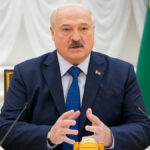
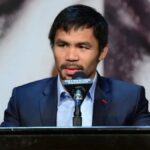











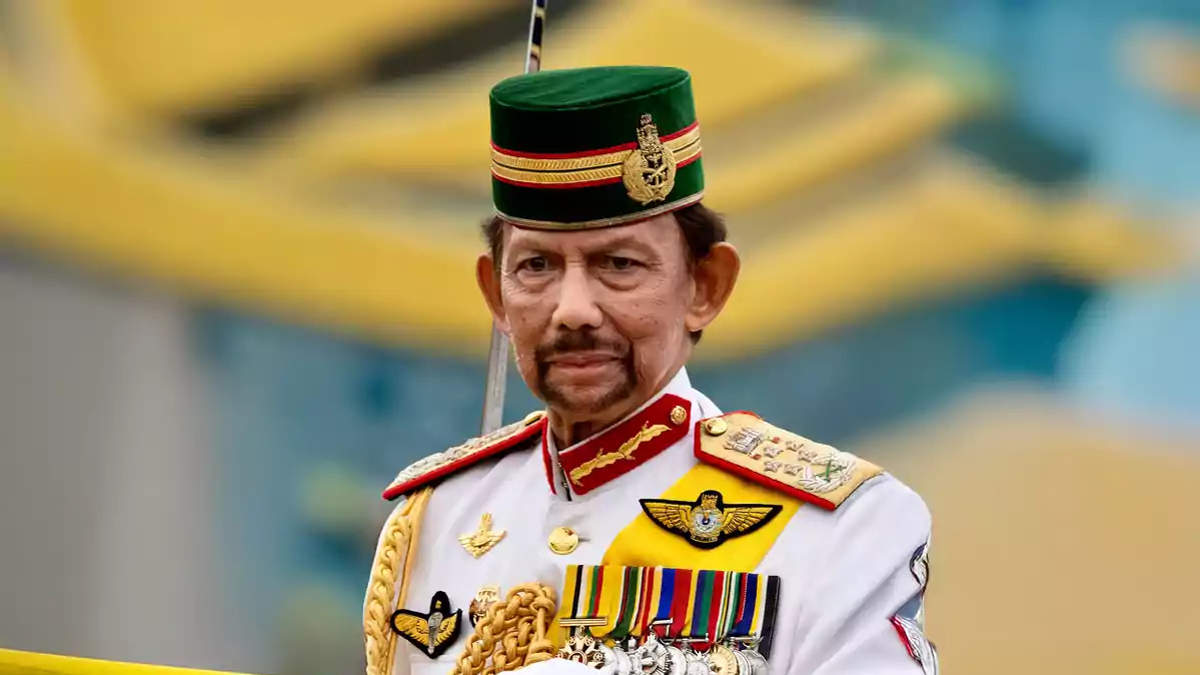

3 thoughts on “Sultan Hassanal Bolkiah Net Worth 2025: Inside His $30 Billion Oil-Fueled Empire”